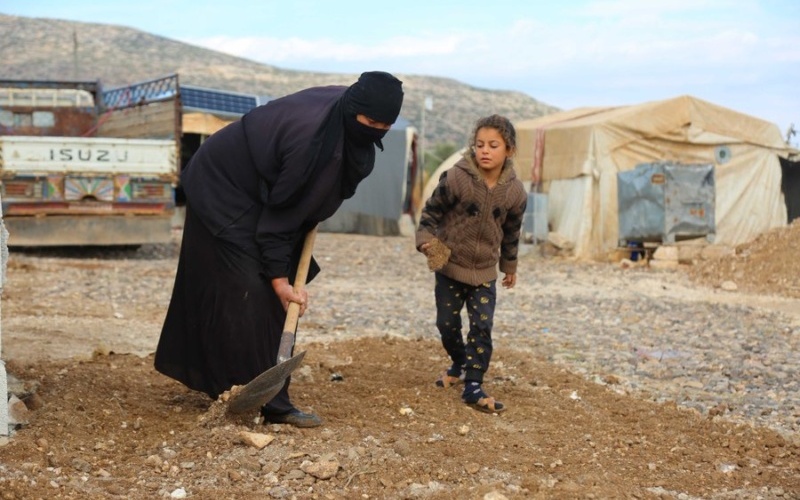Um Mohammad and one of her six orphaned grandchildren in a displaced persons’ camp in Idlib Province in northwest Syria, November 2023 (White Helmets)
The World Food Programme is suspending its general food assistance programme in Syria from January, putting millions of civilians — many of them displaced by the Assad regime’s attacks and repression during the Syrian uprising from March 2011 — at risk.
The WFP said in a statement that it will continue to support families affected by emergencies and natural disasters, such as the deadly earthquakes across northern Syria in February, through more limited, targeted interventions.
See also 51,000+ Killed in Syria and Turkey by 7.8-Magnitude Earthquake
The UN estimates that 4.5 million people live in northwest Syria, most of which is controlled by anti-Assad groups. About 1.9 million live in camps for the internally displaced. More than 91% of civilians live below the poverty line amid 88.7% unemployment, with almost 41% facing food shortages.
Beset by a lack of funding, the WFP has cut aid seven times in Syria. In June, it slashed the numbers assisted from 5.5 million to about 2.5 million.
A spokesperson said, “WFP is now at a crucial turning point in Syria, necessitating difficult decisions.”
The spokesperson said WFP had tried to cope through smaller amounts of food to more people. However, resources remained insufficient.
Starting in 2024, the programme’s goal is to transition from broad-scale general assistance to more targeted aid, directing limited resources more effectively to those facing severe food insecurity.
The WFP will maintain the Livelihoods Support Programme for agricultural families and help for local food systems such as bakeries and irrigation.
Winter’s Choice: Heating or Food
Yasmin Alhamou, a 23-year-old mother of three living in a displacement camp on the Syrian-Turkish border, says, “The decision to reduce WFP assistance has shattered us psychologically and will burden us financially because we cannot afford to buy the food that used to come in our aid basket.”
Alhamou and her family fled regime attacks on Hama Province in 2012, when she was a child, and moved between camps before settling in one near the town of Sarmada in northern Idlib Province.
My husband spends most of his day looking for work and when he finds some. His daily wage doesn’t exceed $3, which isn’t enough for even one meal a day….
We used to receive an aid basket every month, then it was reduced to a basket every two months, which isn’t enough to meet our needs for more than 10 days. Today, given the new decision, we’re not sure what our future will look like….
This will be the toughest winter for us because we will have to forgo purchasing heating materials to buy the food we need to survive.

